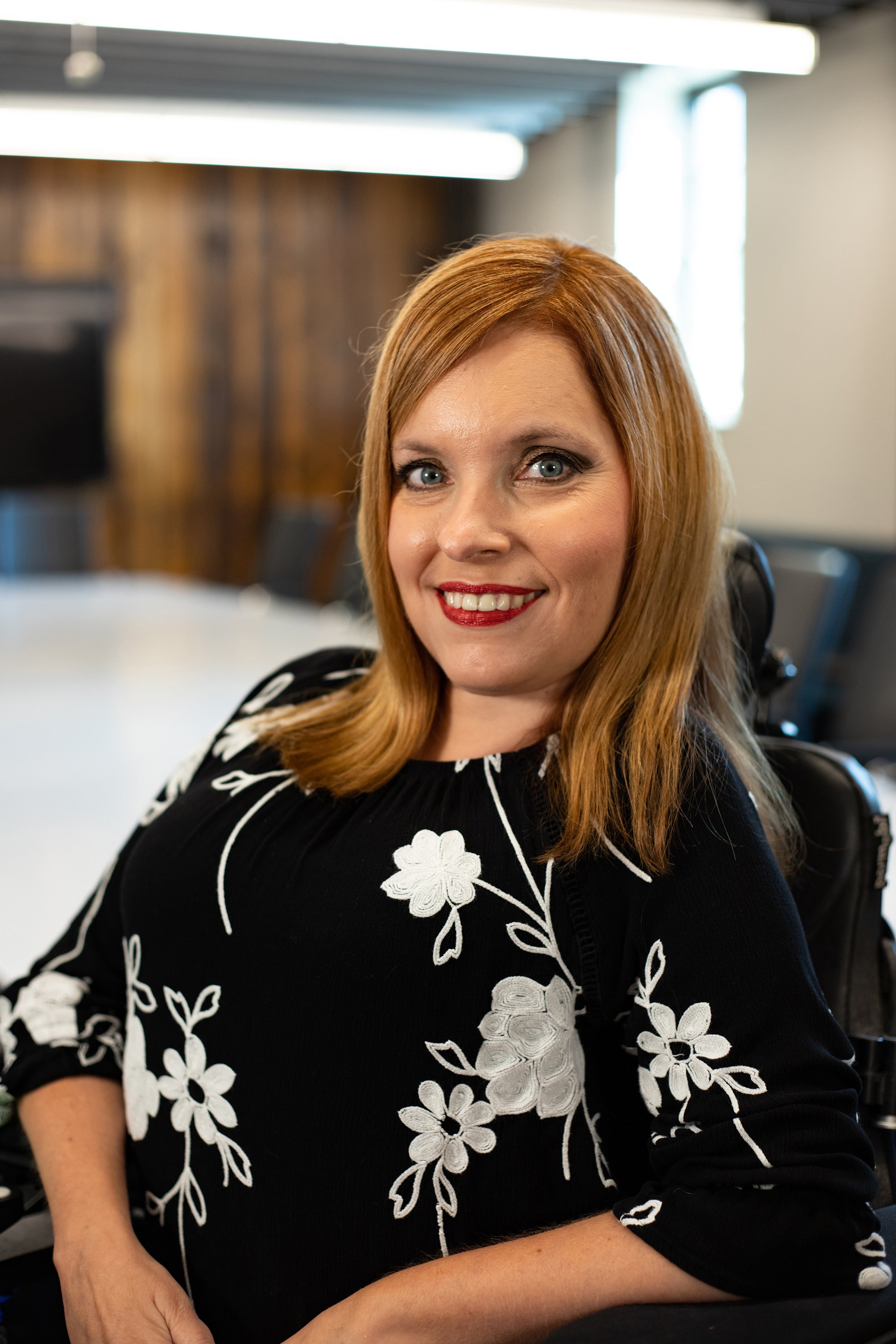Guest Column: St. Louis Business Journal, March 30, 2023
Aimee Wehmeier
President of Paraquad
When I was a small child, I wanted to be a store clerk. I did not walk, and I can remember my dad sitting me on the counter while he checked out. I loved sitting up high and talking to the clerks. As I got older, the vision of who I could become was less clear. I never dreamed of being extraordinary. In fact, growing up in mid-Missouri as a child with muscular dystrophy, I very much wanted a “typical” life.
By “typical” I mean I wanted to be invited to birthday parties, school dances and other social events. I wanted to go to college and build a career. Eventually I hoped to have a house, an accessible van, and a family. But the path to “typical” is not simple for people with disabilities. Too often there are barriers we must overcome.
I am fortunate to live the typical life I envisioned, but it wasn’t easy, and my experience is not common for most people with disabilities. I have an amazing job as President of Paraquad, one of the oldest and largest independent living centers in the U.S. We envision an integrated society free of barriers and discrimination where disability is viewed as a natural part of human diversity. The mission of Paraquad is the story of my typical life.
Unfortunately, people with disabilities in the St. Louis Region now are experiencing new barriers in their pursuit of a typical life. Metro announced in a press release on February 28th that their Call-A-Ride services will be cut on April 10, both by location and time of day. A March 7 public meeting on this topic was inadequately planned and publicized, and many Call-A-Ride users are just now learning they must find alternative ways to get to work, shop, visit doctors, enjoy recreation, etc.
Affordable, safe, and accessible transportation can be difficult for people with disabilities. Most cabs and rideshare vehicles do not have a lift for motorized wheelchairs. Those who are blind cannot use ride-sharing apps where taking turns as the driver is an expectation.
Call-a-Ride has long been the most accessible and affordable transportation option for St. Louisans with disabilities. Less than six weeks’ notice is not enough time for many current users to make alternative plans.
On March 14, Paraquad joined with other organizations that seek to remove barriers for people with disabilities to ask Metro for a six-month delay in implementing the cuts and for conversations to seek a different solution. Metro refused, stating “Our customers have been experiencing inconsistent and unreliable service – from excessively long wait times when trying to schedule a trip, to having their trip requests denied due to the workforce shortage.” Metro admits that they denied 40 percent of requests in January.
How does Metro’s “inconsistent and unreliable service” plus the announced cuts impact real people in our region? Anna has a disability and shared her story with Paraquad. A few years ago, she was employed at a not-for-profit serving other people with disabilities. Her employer showed uncommon patience with the number of days that Call-A-Ride caused Anna to be late. “They would have been within their rights to terminate me,” Anna said.
She decided she must find another way to get to work to solve the timeliness issue. When she caught a ride with co-workers, her daily transportation costs more than doubled from $8 to $18.
Anna is also a breast cancer survivor. She received radiation at a location that will no longer be accessible by Call-A-Ride. She will need to find alternative transportation for annual appointments. Now retired, Anna told me how worried she is for other Call-A-Ride users. “With both employment and cancer treatment, you’re expected to be on time,” she said.
East-West Gateway Council of Governments has called for our region to reach “transportation equity” by 2050. The announced cuts by Metro are a huge setback to achieving that goal. We cannot reach transportation equity by 2050 if we ignore the needs of people with disabilities in 2023. The reductions in service must be delayed while people of good will from many sectors meet to find a solution that works for all of us.
Aimee Wehmeier, MBA, is the President Paraquad, one of the first Centers for Independent Living (CILs) in the country. She has a bachelor’s degree from the University of Missouri and a Master of Business Administration from William Woods University.

